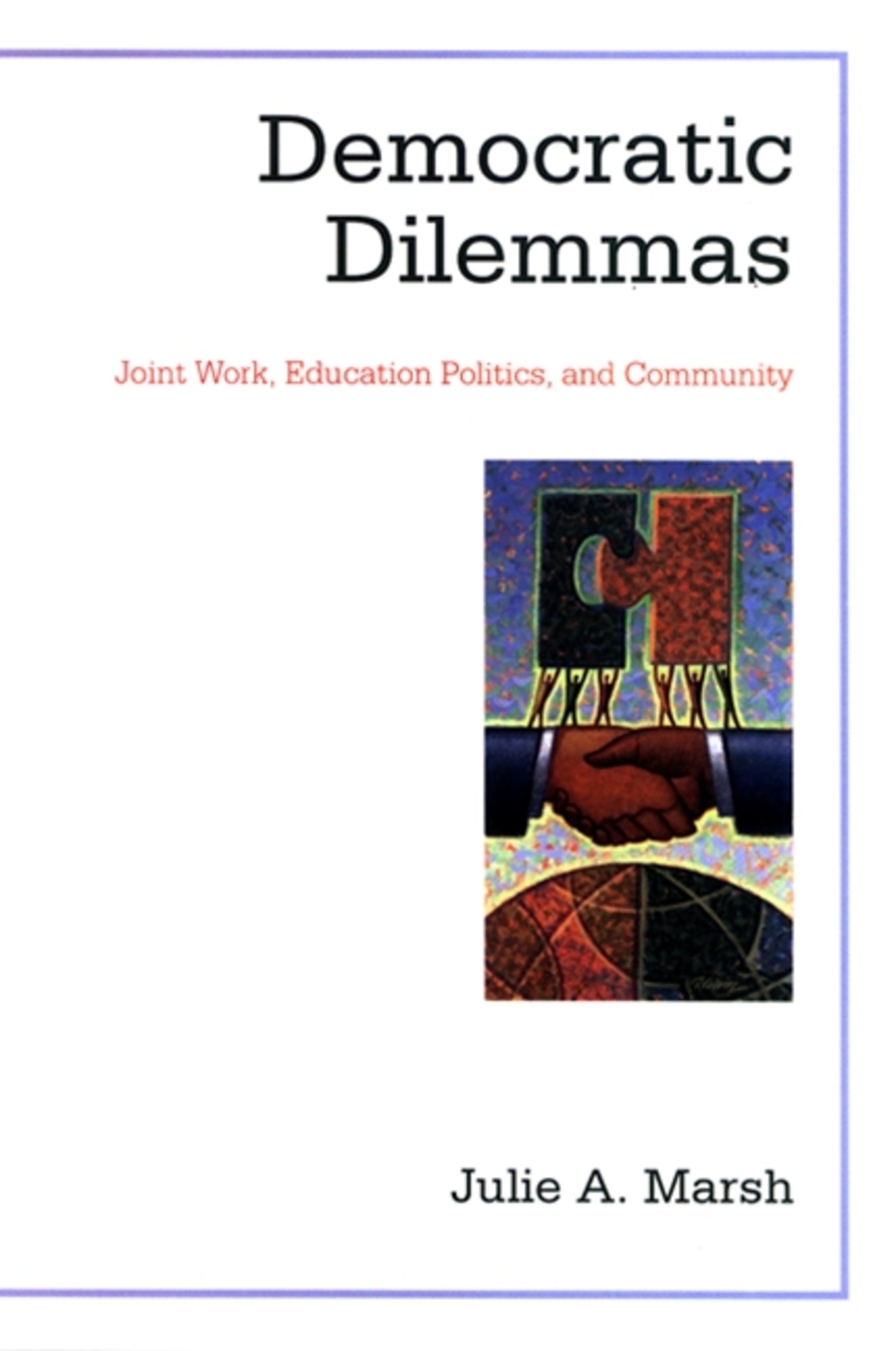We're sorry. An error has occurred
Please cancel or retry.
Democratic Dilemmas

Some error occured while loading the Quick View. Please close the Quick View and try reloading the page.
Couldn't load pickup availability
- Format:
-
10 May 2007

Explores how to engage citizens in the process of educational improvement.
Drawing on three years of field research and extensive theoretical and empirical literature, Democratic Dilemmas chronicles the day-to-day efforts of educators and laypersons working together to advance student learning in two California school districts. Julie A. Marsh reveals how power, values, organizational climates, and trust played key roles in these two districts achieving vastly different results. In one district, parents, citizens, teachers, and administrators effectively developed and implemented districtwide improvement strategies; in the other, community and district leaders unsuccessfully attempted to improve systemwide accountability through dialogue. The book highlights the inherent tensions of deliberative democracy, competing notions of representation, limitations of current conceptions of educational accountability, and the foundational importance of trust to democracy and education reform. It further provides a framework for improving community-educator collaboration and lessons for policy and practice.


"The author reminds us that people who work collaboratively to make change must understand that it is a negotiated process. There are costs involved for each stakeholder. Successful collaboration implies that participants become aware of these costs and develop ways to reframe them as assets." — Educational Administration Quarterly
"The comparative case studies allow the author to probe the emergent themes and patterns and to deal with alternative interpretations with a degree of sophistication not often found in the literature on efforts to engage elements of the school community in school district policymaking." — Betty Malen, coeditor of Balancing Local Control and State Responsibility for K–12 Education
"Findings from this book will inform practice in the field of school governance and leadership." — Kenneth Wong, author of City Choices: Education and Housing
List of Figures and Tables
Acknowledgments
Introduction
Overview of Two District Cases: Unlocking a Puzzle
Historical Context of School-Community Connections
Grounding the Study: A Lens for Understanding the Two Cases
Study Background and Methods
Reflections on and Implications of the Research
Chapter Outline
1. Setting the Stage
State, Regional, and Local Context for Joint Work
Key Facets and Activities of Joint Work
Who Was at the Table
What Was on the Table: Vision and Purpose
How Participants Interacted and Made Decisions
What Was Achieved
Summing Up the Cases and Looking Ahead
2. Participation and Power
Power and Its Many Faces
Participation Patterns and Biases
Explanations and Implications for Democratic Practice
Summing Up and Looking Ahead
3. Institutional Discord and Harmony
Democratic Inclusion and Professional Autonomy
Market Perspectives and Democratic Inclusion
Conditions Affecting Institutional Relationships
Summing Up and Looking Ahead
4. The Democracy-Bureaucracy Face-off
Organizational Forms and Democracy
Organizational Structure: Rigid versus Flexible
Organizational Culture: Controlling versus Learning
Leadership: Top-down versus Distributed
How Resources Affected Organizational Climate
Summing Up and Looking Ahead
5. Climates of Trust and Mistrust
What Is Trust?
Institutional Trust
Interpersonal Trust
Foundations of Trust and Issues of Representation
Summing Up and Looking Ahead
6. Implications for Policy and Practice in an Era of Accountability
Key Tensions and Dilemmas Revisited
Policy Implications: Accountability as Community Responsibility
Democratic and Educational Outcomes
Practical Lessons
Unresolved Dilemmas and Unanswered Questions
Appendix A: Methodology
Appendix B: Mid Valley CAP Participants
Appendix C: Highland Strategic Planning Team
Notes
References
Index



